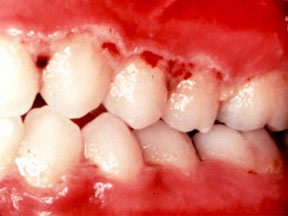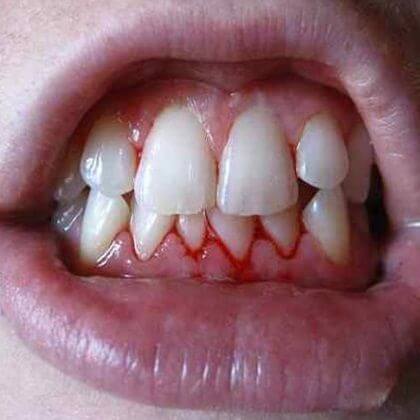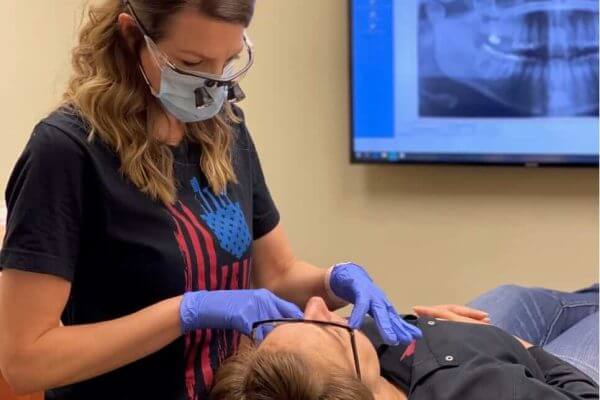Find an Effective and Proven Treatment for Receding Gums
It’s no secret that stress is a killer. From heart attacks to stroke and even hair loss, the consequences of a stressful lifestyle can wreak havoc on the body.
Recent studies connect stress with dental issues. Today, experts believe that the health of teeth, gums and the mouth all may be influenced by stress. Potential impacts include:
- Mouth sores
- Grinding or clenching teeth
- Poor oral hygiene
- Unhealthy diet
- Periodontal disease or a worsening of preexisting periodontal disease
- Depression
- Other bad habits, such as chewing ice or fingernails, and depression
Living a stress-free, healthy lifestyle may help prevent these problems. It’s also wise to seek expert advice on any dental issues you notice.
Fortunately, great advice is located nearby. Dr. Derek B. Hauser, DDs is Riverside County’s leading cosmetic and family dentist. He has been helping patients with their dental issues for more than 20 years.
If stress is a persistent problem in your life and it’s affecting your gum health, Contact Lakefront Family Dentistry at (951) 244-9495 or Request an Appointment Online Today!

Mouth Sores
Canker sores are small ulcers that have a white or grayish base, as well as red borders. These non-contagious sores form inside the mouth in either pairs or groups. Experts are not unanimous on the direct cause of mouth sores, but stress, allergies and fatigue are all associated with canker sores.
To reduce the irritation of a mouth sore, avoid:
- Spicy, hot foods
- Highly acidic foods, such as tomatoes
- Citrus-based fruits
Most canker sores fade within one week to 10 days. Over-the-counter topical anesthetics can temporarily relieve the pain until the sores fully disappear.
Fever blisters, or cold sores, result from the herpes simplex virus. Unlike canker sores, cold sores are contagious. A cold sore is a blister that appears on or near the lips. It is fluid-filled and can sometimes appear just underneath the nose or around the chin.
Gum Disease
Short-term stress can also lead to more dental plaque as the immune system weakens. Long-term stress may heighten the likelihood of gingivitis or bleeding gums, which can develop into late-stage gum disease.
To keep gum disease at bay:
- Eat a balanced diet
- Brush teeth twice daily for at least two minutes
- Floss at least once daily
- Use antibacterial mouthwash to prevent plaque-causing bacteria from forming
- Visit a dentist twice per year for cleanings
Receding Gums
When the margin of the gum tissue surrounding the teeth pulls down or deteriorates, more enamel, or even part of the tooth root, may expose. This is gum recession, a warning sign of gum disease. Patients may notice small gaps or pockets forming between the teeth and gum line when gum recession occurs, which makes it easier for disease-causing bacteria to build up.
Because gum recession progresses gradually, many patients are not aware they have it, but tooth sensitivity is usually the first symptom. Although tooth sensitivity may seem like a minor discomfort, it’s important to consult a dentist if you notice gum recession.
Common Causes of Gum Recession
There are several factors that can cause the gums to recede, including:
- Periodontal disease
- Genetics
- Aggressive tooth brushing
- Poor dental care
- Hormonal changes
- Tobacco products, such as cigarettes and chewing tobacco
- Clenching and grinding teeth
- Misaligned bite or crooked teeth
The ideal treatment for receding gums may depend on the cause, but maintaining responsible oral care is always necessary. As well, it may be vital for the patient to make certain lifestyle adjustments, such as quitting tobacco products or wearing a dental guard while sleeping.
Treatment for Receding Gums
A deep cleaning is an effective form of treatment. The dentist will remove tartar and plaque that appear on the teeth or root surfaces below the gum line.
Your dentist may administer antibiotics to help combat bacteria and prevent the infection from returning. In severe cases, oral surgery may be necessary to repair recessed gums.
Request Appointment at Lakefront Family Dentistry
If you need a cosmetic or general dentist, contact Lakefront Family Dentistry to schedule an appointment with Dr. Derek B. Hauser. To improve your gum health, Contact Lakefront Family Dentistry at (951) 244-9495 or Request an Appointment Online Today!






